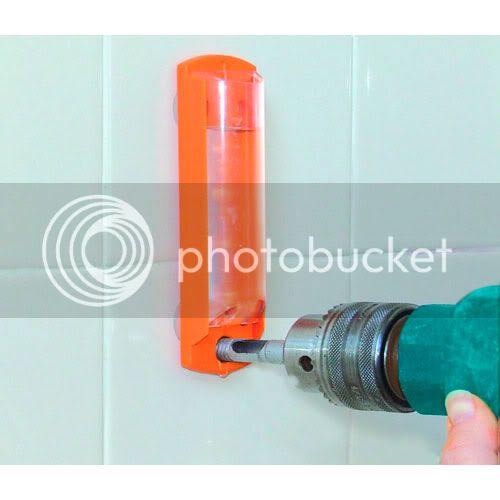Jake":1w29lxru said:
Up to you I guess, but I wouldn't use an expansion fitting in tile.
A rawlplug's perfect for tiles, don't push it through into the 'void' of a studwall. ( including the drywall board itself ) they're not designed to hold in plasterboard. Fastbrollys or unifix anchors ( togglebolts ) are the correct fixings for plasterboard.. better still into a proper 'dwang', ( noggins you southern fellas call 'em ! ) - not where 'tiling' is concerned obviously, but just plain plasterboard itself.
But don't on any account push a rawlie THRU a tile to fix into a plasterboard + nothingness, you'll have 4 tiles all off round about it within a year, and a big-ass hole into the bargain.
Thats why is got a flange on it in the first place.. to STOP it going any further into the hole than its first point of contact. ( i.e. the tiles face )
It expands in a
concentric fashion, which the circular hole in a tile is ideal to accommodate and maintain all its strength. Tiles are weak in many aspects but not in that fashion.
The motion on a 'hollow fixing' is
linear.. totally different mechanics behind how the support strength is achieved.
Dinnie poke 'em thru tiles into nuthin'ness !
thats nae what there fur !
Your relying then on plasterboard to accommodate all the support... and you just stated that you wouldn''t do it to a TILE ???
no no no Ma'am ... thou art barking up a very errant tree





